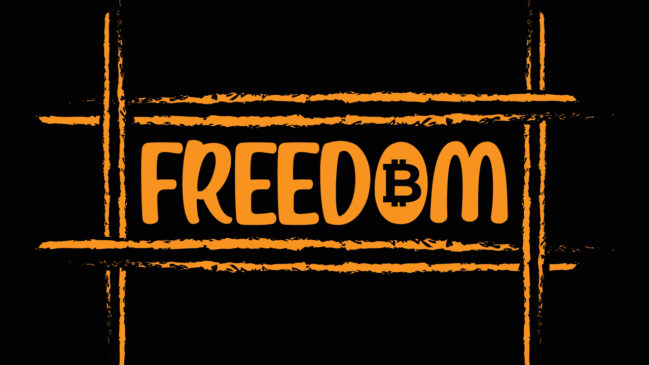Cryptocurrencies have been proven to be a financial tool that can be used to store value or make payments by those excluded from the financial system. Yet, despite this being true in many jurisdictions, many of those that might benefit from cryptocurrencies are still not using them.
Regulatory Uncertainty and Ignorance
There may be several different reasons why this is the case, but as many in the crypto space have acknowledged, regulatory uncertainty and ignorance are often the key factors that dissuade prospective users from adopting this fintech.
Therefore, in order to overcome these and other barriers, entrepreneurs like Tadii Tendayi, the CEO and co-founder of Bitflex, have or are launching fintech solutions anchored on blockchain tehcnology. To understand how Bitflex is aiming to use the blockchain to benefit the masses, Bitcoin.com News recently reached out to the CEO via Linkedin.
Below are Tendayi’s answers to questions sent to him by Bitcoin.com News.
Financial Freedom a Human Right
Bitcoin.com News (BCN): Can you start by telling our readers what made you decide to start this project and who else is behind it?
Tadii Tendayi (TT): BitFlex was born out of the need to improve access to digital assets for Zimbabweans. It was registered in 2017. Given Zimbabwe’s current economic situation this is the easiest way to pay for products abroad.
BCN: Is your startup already profitable or will this take a bit longer to achieve?
TT: This will take a bit longer to achieve as right now Bitflex is focused on building strategic partnerships and supporting vulnerable communities through crypto.
BCN: You say their firm’s objective is to increase Zimbabweans’ access to digital assets. Can you tell us why this is important?
TT: Financial freedom is a human right, not a privilege yet getting access to funding remains a challenge for third world citizens in Africa and in our case Zimbabwe. However, the great thing about open source and decentralized assets such as bitcoin, is that they do not see colour, creed or borders. Everyone has access to it and can interact with the blockchain, even without an internet connection. This nullifies the need for a centralized party to decide where, when and to whom you can send value. The other reason why it is important to improve Zimbabweans’ access to digital assets are sanctions imposed on the country by the U.S. which affect citizens who have nothing to do with any political qualms. The sanctions block Zimbabweans’ access to the global financial system.
BCN: Do you think enough Zimbabweans understand digital currencies or their usefulness to society?
TT: Absolutely! This goes without saying. However, the blockchain is something new, not only in Zimbabwe but around the world hence these things need to be addressed on a national scale with educational programs that enable us to keep up with the rest of the world.
BCN: Apart from receiving grants from Polygon and Celo, how else is Bitflex getting funded or from whom is your firm getting financial support?
TT: We have mostly been bootstrapping through our stakeholders and directors while working on building relationships. Bitflex has also received a grant from an amazing blockchain project called Gooddollar, which focuses on UBI (Universal Basic Income).
BCN: I understand your company had or has plans to do remittances using the blockchain. What is the latest and why did your company choose to do this using blockchain?
TT: While banks and other financial institutions are not as effective in processing money transfers, such services may no longer be adequate for today’s more dynamic and sophisticated money transfer needs. And while we do have third party services such as Western Union and World Remit, the blockchain is needed because it is faster and cheaper.
BCN: Bitflex also appears to be doing charity related work. Why is it necessary for a startup to be involved in such work?
TT: This is something that we believe is the goal of Bitcoin and our way of paying homage and attempting to shorten the wealth gap. Everyone has a right to access funds and financial freedom and we can achieve this through bitcoin. It’s also important to educate people about how cryptocurrencies can be used for social responsibility initiatives.
Everyone has a right to access funds and financial freedom and we can achieve this through bitcoin.
BCN: From your perspective as the president of a local blockchain association, do you see many African countries choosing to embrace this technology in the next five years?
TT: Absolutely! African governments are beginning to see the benefits of Blockchain such as Nigeria, Ghana and Kenya which are and/or have launched CBDCs (Central Bank Digital Currency). I personally believe and hope that Africa unites and creates a single Blockchain that works to benefit all participating countries like the European Union’s Euro. Although this is something that would need an immense amount of lobbying and coordination which isn’t easy or cheap.
BCN: A lot has been said about Zimbabwe being a country that is ideally placed to use cryptocurrencies, yet evidence on the ground suggests many are still hesitant. What do you think is the reason why many Zimbabweans are still not using or trading cryptos?
TT: I will answer this in two parts, the first part is I agree that Zimbabwe could benefit from adopting and integrating blockchain technology into its financial system similar to El Salvador while bridging the gap between fiat and crypto.
I do however think there is a lot of P2P trading within the country that is not put into the spotlight as there is no exchange but I can guarantee you that there is more P2P trading than you may expect.
BCN: What must be done to persuade these prospective users?
TT: There need to be platforms for users to trade and be able to exchange digital assets for local currency. Such as Coinbase or Binance. There is no reason why Zimbabweans shouldn’t have access to digital assets like our neighbours in South Africa, Nigeria etc.
What are your thoughts about this interview? Tell us what you think in the comments section below.
Image Credits: Shutterstock, Pixabay, Wiki Commons
Disclaimer: This article is for informational purposes only. It is not a direct offer or solicitation of an offer to buy or sell, or a recommendation or endorsement of any products, services, or companies. Bitcoin.com does not provide investment, tax, legal, or accounting advice. Neither the company nor the author is responsible, directly or indirectly, for any damage or loss caused or alleged to be caused by or in connection with the use of or reliance on any content, goods or services mentioned in this article.



